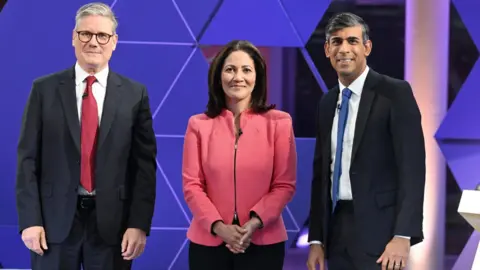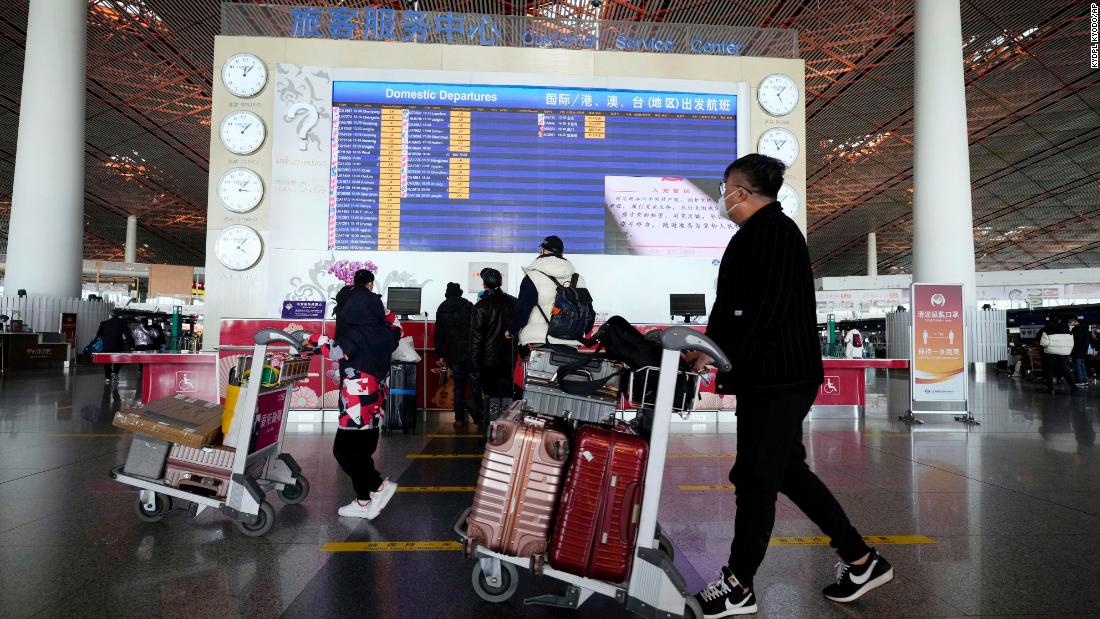 BBC
BBCThis was this campaign’s most free-flowing debate.
Spared the shackles of outwardly noticeable rules and early campaign nerves, this was an evening freighted with the jeopardy of the imminence of the electorate’s verdict.
Or to put it rather less pompously, Rishi Sunak and Sir Keir Starmer were really up for it.
Little wonder.
Postal votes perch on kitchen tables, big thoughts about how to vote in person perch uppermost in the minds of millions.
Mr Sunak is the more comfortable of the two in this format; he wore the role of underdog with little to lose and with a confident, persistent scrutiny of his opponent.
Sir Keir – with everything to lose – had his own frequent scripted put-downs and jabs of scepticism; a notable difference from their ITV outing three weeks ago.
Here’s a little insight where my job as a reporter on the telly and radio overlaps with those in political leadership.
Half the knack in a live environment is to dream up some memorable phrases which can be deployed in particular circumstances.
They won’t all get an outing. Sometimes none of them do. But when the moment arises they are delivered with a flourish.
And given half the chance if you’re a political leader, you deliver them over and over again.
They are not written down. They are memorised and practiced. They are a scripted ad lib, a contradiction in terms, literally, but a vital tool in this format.
There was a shedload of them in this debate.
Mr Sunak leant, over and over again, on the word “surrender” – the idea, as he sees it, of the country giving up and opting for a Labour government.
Sir Keir instantly dismissed Mr Sunak’s claim of an extra tax bill of £2,000 under Labour as a “lie”.
He had jabs too claiming Mr Sunak was out of touch.
This felt like a far more competitive contest than the opinion polls persistently suggest this election is.
A snap poll by YouGov suggested it was a dead heat.
More in Common’s poll suggested Sir Keir did better, but also that Mr Sunak was judged better than expected by a greater proportion of the audience than Sir Keir.
After five weeks of campaigning, the vast lead Labour has in the polls over the Conservatives hasn’t budged.
So the precedent of that period – a little over a month – suggests that a little over an hour spent in a TV debate is unlikely to shift the dial.
But this is the zone of attention, a vanishingly small window in the five-year electoral cycle, where how people might vote isn’t an exercise in the hypothetical but the reality of now and next week.
The need to woo, reassure, persuade even convince is never more acute in politics than right now.
And this last set-piece event now done, the sprint finish to the end of this contest is under way.
Note:- (Not all news on the site expresses the point of view of the site, but we transmit this news automatically and translate it through programmatic technology on the site and not from a human editor. The content is auto-generated from a syndicated feed.))




